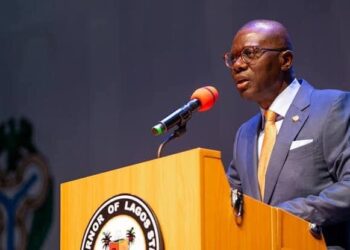World Bank Task Team Leader for Nigeria COVID-19 Action Recovery and Economic Stimulus (NG-CARES), Prof. Foluso Okunmadewa, says the programme is on the right track in supporting the poor and vulnerable groups in the country.
Okunmadewa said this in Abuja, at a Ministerial Town Hall Meeting on NG-CARES Programme with Stakeholders, States and the FCT officials as well as beneficiaries to obtain and document information on achievements and challenges from direct beneficiaries.
He said that the bank was very proud to be a partner of the Federal and State Governments on the NG-CARES initiative. He said that so far there had been substantial results and evidence that this approach, this efforts is actually on the right track despite some of the challenges.
“We are actually very proud and of course excited to be part of this Ministerial Town Hall. We are quite happy when the Minister of State, Budget and National Planning, indicated that it is not only good to claim that there are results. Even though it was done by an Independent Verification Firm, it is also important to hear from the beneficiaries and particularly to do so in the presence of those who are in charge of delivering the results. I thought and I believe and that is also what we understand in the bank that it is the correct meaning of eye marking because when you do it in the presence of everyone then there is no dispute. And particularly if you bring the media in, then everybody will be able to confirm that this is reality of what has happened.” Okunmadewa revealed that the World Bank was prepared to do an extension of the closing date which would be concluded in the next one week.
Earlier, the National Coordinator of NG-CARES, Dr Abdulkarim Obaje, said the NG-CARES programme was a multi-sectoral programme intervention designed to bring immediate relief to the poor and vulnerable Nigerians that have suffered during the COVID-19 pandemic. Obaje explained that the programme was a 750 million dollars facility from the world bank that should be implemented ordinarily for two years.




